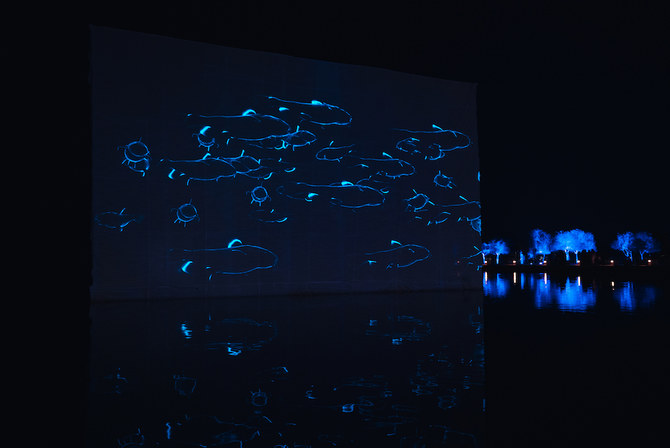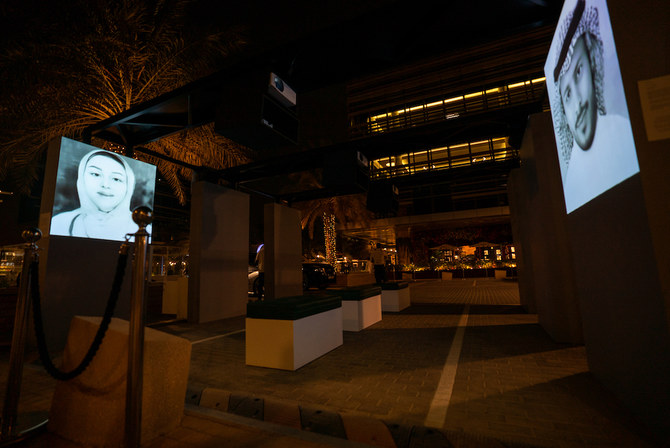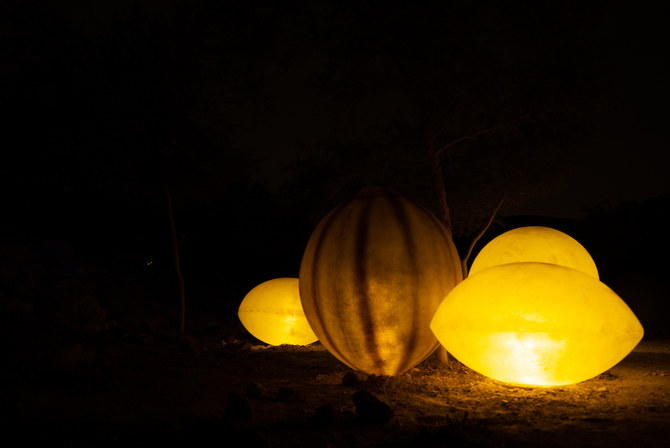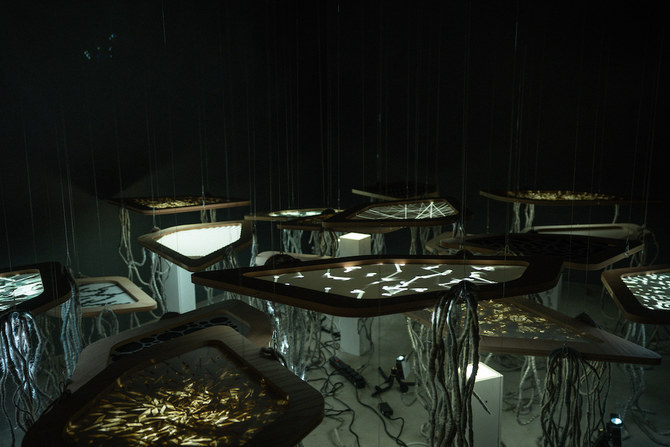RIYADH: Art has been known throughout history to reflect, or even elicit, social, cultural and artistic change in cultures. The Renaissance period in Europe beginning in the 14th century, for example, or India’s Bengali Renaissance in the 19th century.
Now, Saudi Arabia, a country that was founded only 90 years ago and is currently undergoing a period of great transformation under its Vision 2030 diversification and development program, finds itself in a liminal, or transitional, space bordered on one side by historical behaviorism and on the other by the dawn of the future. As such, one can only wonder if the Kingdom’s experience will show us whether, in an age of technology, art still has the power to truly influence our societies?
In common with many other aspects of Saudi society, the arts sector is experiencing a period of rapid development and growth. Thanks to the establishment of a variety of arts festivals, increased government funding, the launch of exhibitions, and the introduction of public art installations, the country is slowly embracing, or rediscovering, its own local, traditional art forms, creating new ones, and opening the door to cultural-exchange opportunities by hosting exhibitions of international art.
The second annual Noor Riyadh festival of light illuminated the streets of Riyadh this month, for example. Staged under the auspices of Riyadh Art under the theme “We Dream of New Horizons,” this year’s event was three times bigger than the inaugural festival in 2021, with works by more than 120 local and international artists on display in public spaces at 40 locations across the city.
Architect Khalid Al-Hazani, Riyadh Art’s program director, said the festival aims to create joyful experiences for the people of Riyadh by highlighting the beauty of their city’s natural landscapes and cityscapes.
“The reality of Noor Riyadh 2022 is that through a sense of wonder, the artists are exploring the use of illumination, luminosity and their own encounters with materials as staging relations to otherness and hope in the form of light,” Al-Hazani told Arab News.
The festival therefore looks to a more hopeful future after the trauma caused by the COVID-19 pandemic. It imagines a city without borders, art without frames and poses a crucial question: Who is Noor Riyadh for?
“Our main purpose is to reach the widest audience possible, going beyond traditional art audiences to the wider public,” Al-Hazani said.
During this period of transformation in Saudi society, contemporary artists throughout the country are seizing the opportunity to slowly normalize certain ideas that were previously considered controversial by societal standards.
Saudi artist Daniah Al-Saleh said her first exposure to contemporary art was in the early 1990s during a visit to the Venice Biennale. After an undergraduate education in Riyadh that exposed her only to classical, impressionist and modern art, she said she was enlightened by the malleability of artistic expression.
“That just opened doors for me and made me reflect and think about what art can be,” she told Arab News.
Her own artistic practice often utilizes aspects of computing and machine learning to translate abstract ideas into reality. She said she aims to push the boundaries with artworks and installations that combine traditional forms of art such as paintings, with more innovative content such as computer programming code.
One of Al-Saleh’s installations at Noor Riyadh, “Love Stories,” is on display at Oud Square in the city’s Diplomatic Quarter. It examines the traditional resistance to public displays of love and affection in conservative societies.
“There’s this tension and double standard between the things that we know are okay in songs and poetry but not okay in real life,” she said.
Her artwork is comprised of multiple figures, generated by artificial intelligence and projected onto pillars, that lip sync to 26 well-known Arabic love songs that feature lyrics about public declarations of feelings of love. Al-Saleh said the reaction to the work was unexpected.
“I saw people, non Saudis, sitting and smiling, because I translated the lyrics in English,” she said. “For me, as an artist, to see people sitting by an installation for more than five or 10 minutes, it’s a huge deal.
“For the Arab population, they sat and sang with these AI characters; you see them smiling … it’s such a powerful feeling and brings people and communities together.”
Al-Saleh’s second installation at Noor Riyadh, “Delicate,” which is on display in the Jax District, considers ideas of hierarchy and inequality through a skeptical eye. Inspired by the words of Adrienne Maree Brown in her book “Emerging Strategy: Shaping Change, Changing Worlds,” the artwork is based on biomimicry: The process of emulating natural elements to solve global problems.
Al-Saleh’s mixed-media work was created using wood, wool, digital computations, paper, canvas and one of the world’s oldest materials, felt, all of which work together, she said, to create a suspended ecosystem of beauty and self-sustainability.
Saudi artist Bashaer Hawsawi said the first step toward bigger changes in attitudes toward art in a society is to encourage greater public engagement with the local art scene.
“The simplest form is photographs of pieces of art on social media,” she said. “It’ll spread around, people will see that this is happening, they’ll talk, ask and want to know more.”
Hawsawi’s work “Early Ripening” adds a private angle to public art. It portrays methods of pickling lemons and was inspired by her own early memories of watching her mother carrying out the process. She said the work aims to highlight the simplicity of everyday tasks in public spaces but also the substantial role they play in local culture. Scattered across the landscape of Wadi Hanifa, the artwork uses fiberglass lemons to depict the pickling process, the products of which are used in some Saudi communities as tonic to aid recovery.
Saudi artist Basmah Felemban told Arab News: “We’re in an interesting position where all of us should talk about all of our experiences, away from necessarily any forced discourse from the international conversations that are happening.”
Felemban’s works explore ideas of ethnicity, immigration and cultural origins, topics traditionally rarely discussed publicly in the region. She said she hopes to spark conversations and answer questions about her own history.
In her work “The Eleventh View of Time,” the viewer observes, through projected images at Wadi Hanifa’s Ringing Bird Lake, the journey undertaken by another species, which has parallels with the artist’s own story of immigration, ethnicity and ancestry, stretching from Indonesia to Saudi Arabia,.
Conversations about cultural diversity are more common in the West, and the artist believes that the Middle East needs to develop its own ways to address these topics “that adhere to our historical backgrounds.”
With the aim of helping to transform the art world from a perceived image of elitism to populism, the artworks at Noor Riyadh are designed to present new ideas and spark cultural discourse on a local and global scale.
“Good art inspires but great art activates,” said contributing Dutch artist Daan Roosegaarde.
His artwork “Waterleight,” on display at Salam Park, uses a captivating and mysterious laser show to call attention to the effects of climate change. It shows the potential global results of rising sea levels, against the backdrop of plans for a greener, more sustainable future under Vision 2030.
His native Netherlands, he said, would already be underwater without the application of technology, science and creativity.
“The world is changing, so we have to somehow adapt … I think it’s important to realize that we have to invent, imagine and create that new world — it doesn’t happen by itself — (and) learn from the mistakes that we’ve made,” Roosegaarde said.
Cultural exchange is a crucial element in an evolving art scene, according to renowned artist and lighting designer Marc Brickman, who served as a consultant on the plans for the landmark Al-Faisaliyah building 24 years ago.
Now, he has created a 2,000-drone light show that uses science and technology to encourage us to question our need for order in a chaotic world.
“I think art throughout the ages has always been the leading element because it deals with people’s imaginations and the way they think,” Brickman said.
“And a lot of times they’ve tried to stamp it out and conform it but it always rises back to the top.”







































